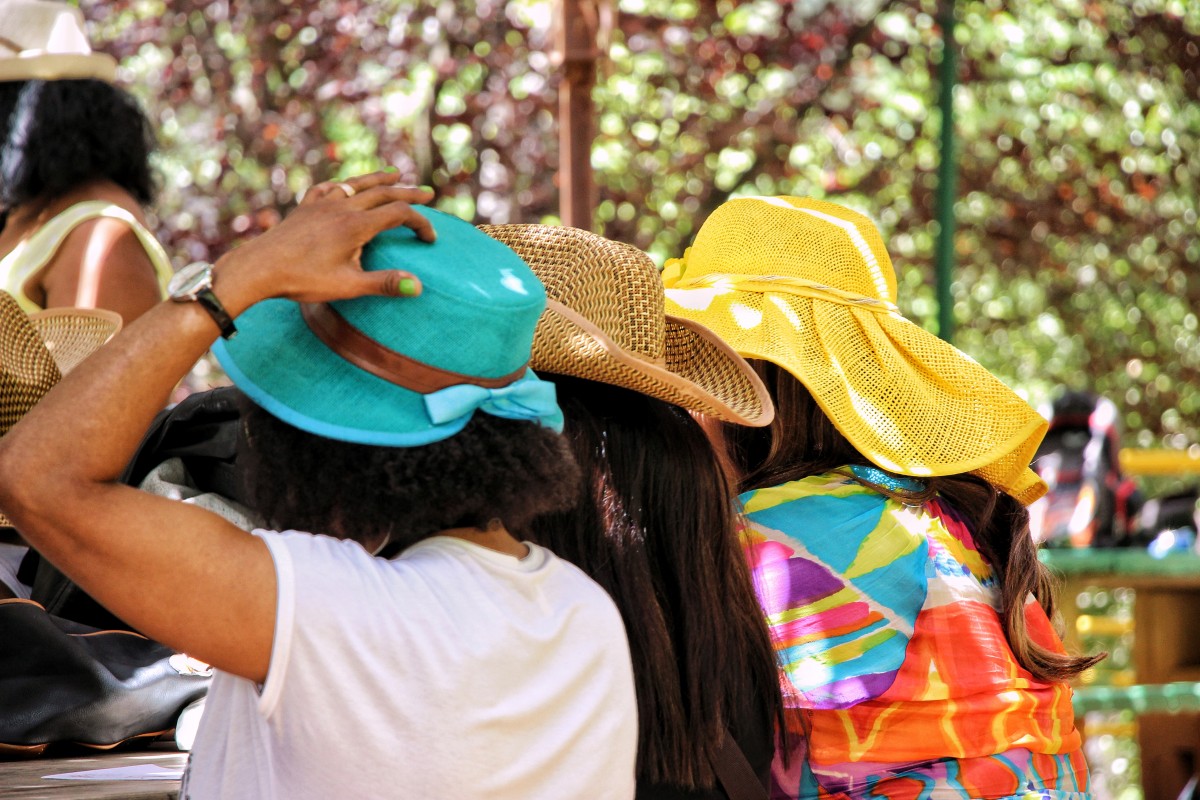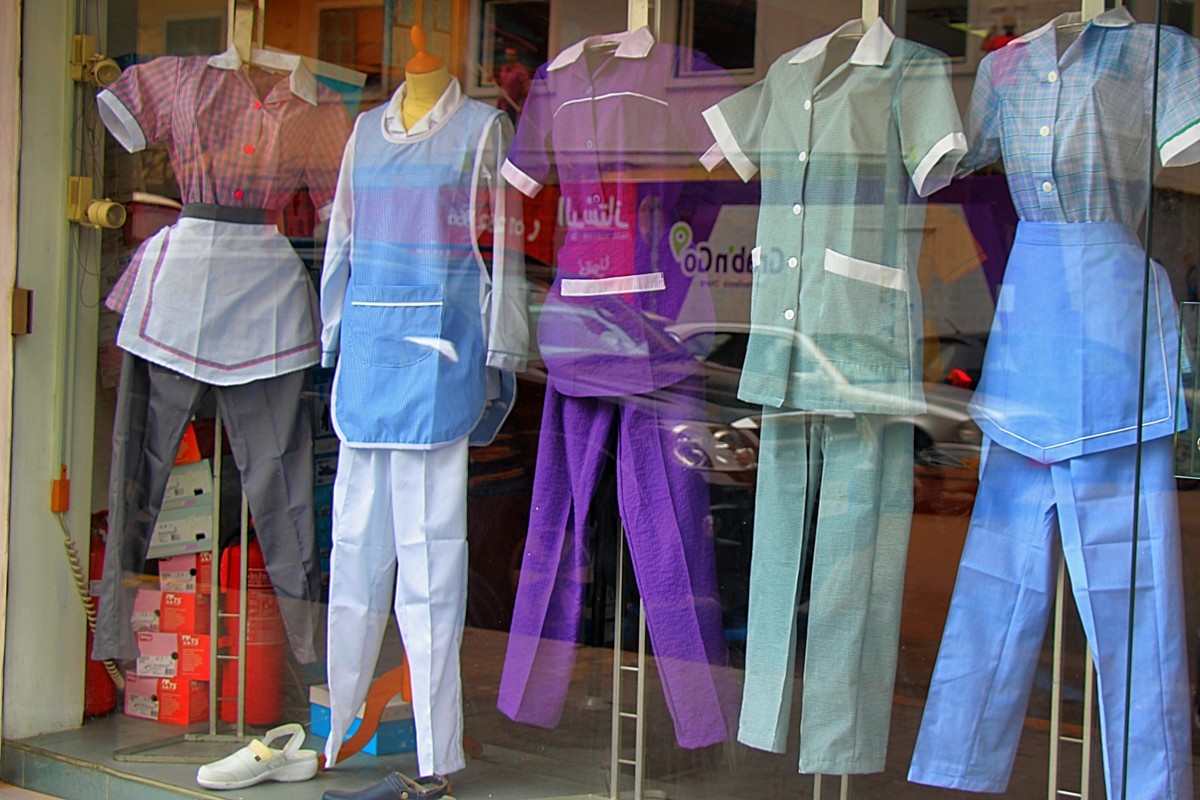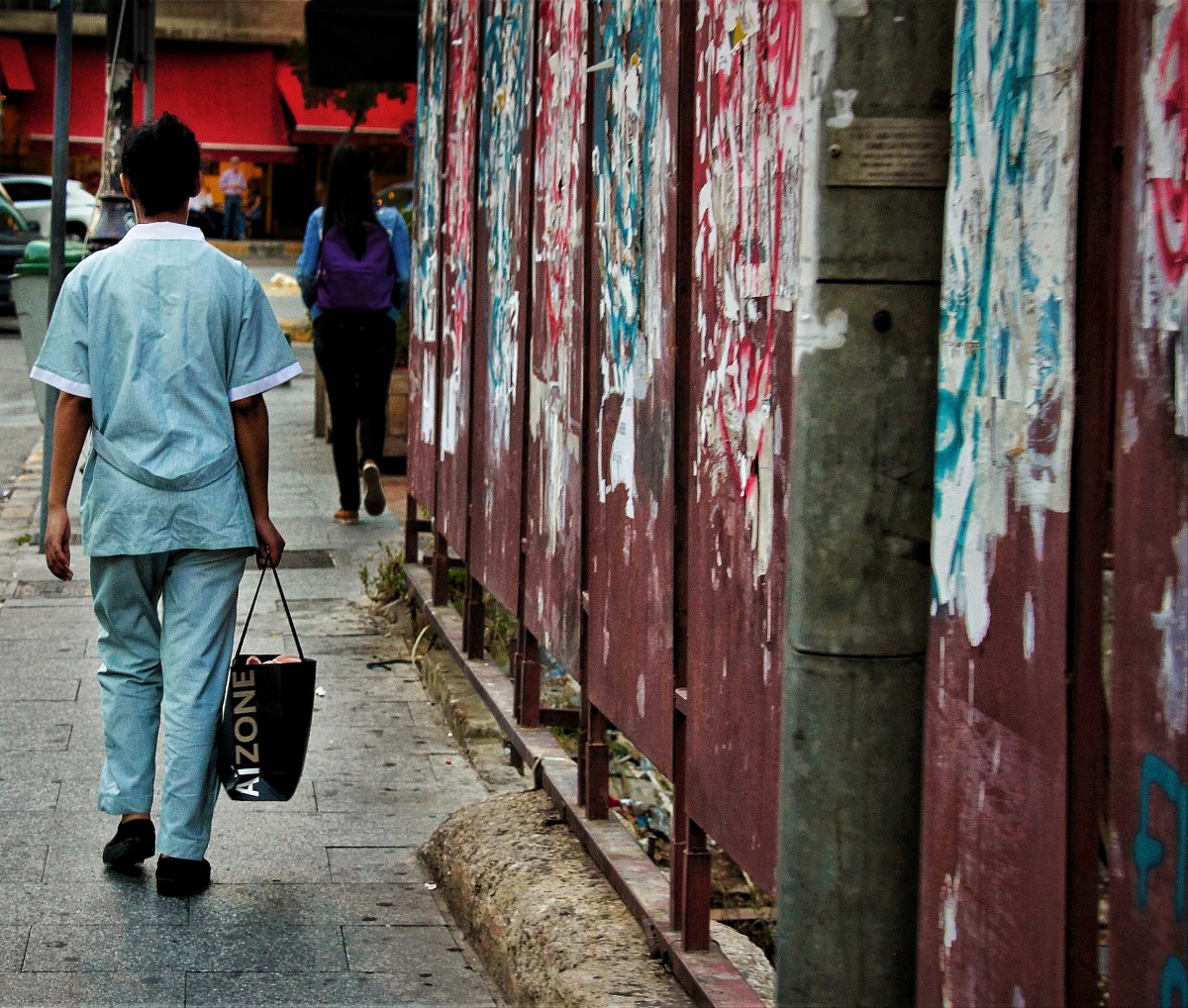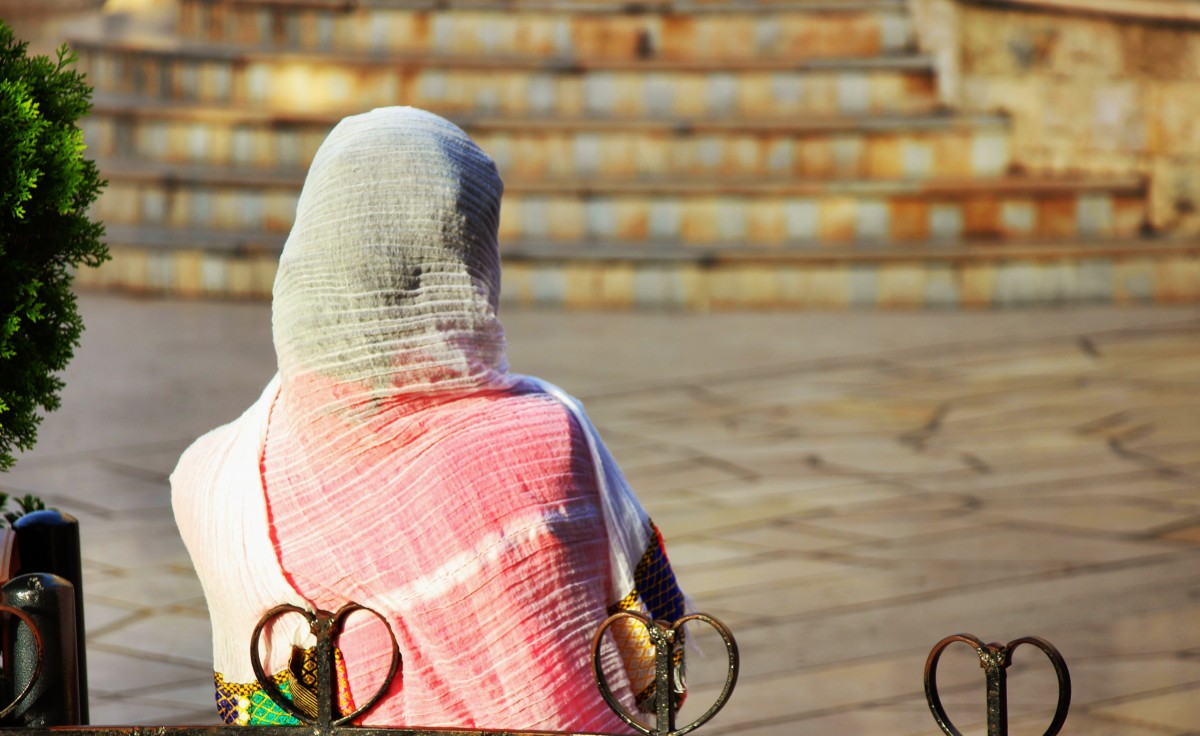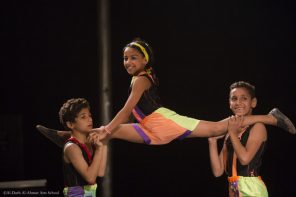A Sunday in Beirut
In Lebanon, hiring immigrant maids to take care of the home is common practice. They cook, clean, go grocery shopping, look after the children, and make sure their employers’ house stays nice and pleasant. Most of them live in their boss’ house, but some of them have decided to have their own place and do cleaning work here and there.
Besides their job, these women have in common the fact that they all are immigrants in Lebanon for a short or long duration, enough to earn some money to take back home. According to our estimates, 250,000 immigrated housemaids work in the land of the cedars. Most come from Ethiopia, Bangladesh, Philippines, and Sri Lanka. Onorient met these women in order to find out more about their very peculiar lives and their experiences as foreign women in Lebanon.

On the occasion of a Sunday outing organized outside of Beirut, dances and traditional music take centre stage.
Sunday is like an oxygen bubble; it is a day for rest, sociability, groceries, femininity, life, far from the beautiful Lebanese houses where they work. It is their only day off when they have any. Sunday in Beirut seems like a happy celebration, a day to lose track of time as activities multiply. On Sunday, hours are not counted, a light atmosphere takes over the streets of the Lebanese capital.
During the week, their work apron clearly identifies these women as immigrant domestic workers. Walking the employers’ dog, scanning supermarkets’ shelves, carrying groceries bags in the street, these Lebanese women’s social role is limited to their profession, to which they should be entirely devoted.
Finally, on Sunday, they can leave aside the professional mask hiding their face and show their true colours when they are not working. Whenever they can, they leave their workplace which is also their home to spend the whole day out. More numerous in the streets of the Lebanese capital on Sundays, they become visible in the public space. They just live, like any other woman. Outwardly, there is nothing surprising in this. However, when they appear in this way, as women and not as domestic workers, they implicitly claim their humanity.
A boosted and highlighted femininity as a mode of expression
As they are used to get up early, these women go out in the streets of Beirut as soon the clock strikes 9. In their often-dilapidated room, they enjoy taking time to apply make up, set their hairstyle and choose their clothes. During the week, they keep taking care of others instead of themselves. Clothes make them rediscover an identity, a character, normally hidden when they wear their uniform. As a mode of expression and a tool to claim their femininity, Sunday clothing styles are usually elaborate.
When outside, their coloured clothes strike the passers-by’ eyes. Ethiopian women cover their head and shoulders with a white transparent veil. Other women highlight and display their femininity with fitted dresses, shoes speckled with sequins, braided or straight hair, big creole earrings surrounding the face and jewels adorning the bodies. Group or individual smiling portraits are then shot and sent to families back home.
Taking over the Lebanese public space
Small parts of Côte d’Ivoire, Madagascar, Ethiopia, the Philippines, Sri Lanka are progressively and slowly recreating themselves in Beirut. Dona, who used to be a domestic worker, got married with a Lebanese man and now owns a hair salon that is full of customers even on Sundays. She does Ethiopian women’s hairstyles in her tiny and colourful shop. Lebanon seems to fade away in the Ethiopian atmosphere.
These shops started developing in the 1990s in various squares of the Lebanese capital because of the growing population of non-Arabic migrant workers. They are far from rare nowadays. Asaf Dahdah, a geographer and researcher at the National Centre for Scientific Research in France (CNRS), talks about an “ethnic shop plan” to refer to a “commercial activity, developed by native and/or foreign business owners, which targets one or several foreign populations.”
Dawra is a suburb of Beirut but for migrants it is a central hub full of African and Asian shops coming one after the other. Dawra’s cosmopolitanism is even more bustling on Sundays. Immigrant women meet in groups and walk around the animated streets. They speak Arabic even when it is not their mother tongue because most of them learned it in Lebanon. The streets transform into an open-air melting pot. Because of their unstable status, migrant workers cannot set roots in the cedar country; this investment of and visibility in the Lebanese public space becomes a pacific victory.
Dawra is an international city but also a place where these women’s identities and origins are clearly present. When they go to the shops selling the products of their countries, national specificities surface. In Dawra, this mixture between local identity and a broader belonging to the community of immigrant women domestic workers is striking.

In Dawra, the presence of immigrant workers is reflected in the shops selling products marketed to them.
The quest for a normal lifestyle
Anyone who walks on Dawra streets on Sundays will see the desire of those women to have a normal life. Strolling, laughing, singing, dancing: nothing seems to distinguish them from the rest of the Lebanese population. Yet, given their precarious financial, legal, professional, and residential situations, such a quest for a normal life amounts to mere symbolic resistance.
Jeanne, a domestic worker for more than twenty years who came from Madagascar, tells us her employers’ systematic response when she asks them for a little money: « Jeanne, why do you want 10 dollars? Do you need anything? I can buy you anything you want. You want to buy shampoo with the 10 dollars? » Being able to go to Dawra and buy what she wants with her 10 dollars feels like a liberation from the boss’ authority. In reality, completely harmless acts are marked by a desire for autonomy, after a week of infantilisation at work.
Every Sunday, the quest for a normal life is reaffirmed but it is constantly confronted with the foreign origins of these women. Indeed, they keep being labelled as immigrant domestic workers both by Lebanese people and by other immigrant women. Apart from the colour of their skin, which unfortunately remains a determining criterion in the attribution of this label, the places they visit and the shops where they buy their clothes all participate in this categorization. Probably unconsciously assimilating that only the Lebanese should visit certain places, these women dare not go there, just as few Lebanese go to Dawra. These women thus spend their Sundays in the Lebanon of immigrants, adorned with African and Asian colours and sounds but marked by symbolic violence.
Beyond symbolic violence, a revelation of the vulnerability of immigrant women
When spending a Sunday in the streets of Dawra, one cannot help notice absences, especially of Bangladeshi and Sri Lankan women, yet numerous to work in Lebanon. Admittedly, Bangladeshi women usually live in Muslim areas in the South and the North of Lebanon, but it doesn’t explain entirely their rare presence in Dawra. Other factors must be taken into account, even though there is a risk of creating stereotypes on the behaviour of these women. In the Bangladeshi community, Sunday is not really synonymous with day-off. Either these women don’t have a day-off, or they take advantage of it to do house cleaning by the hour, higher paid, and supplement their income.
Indeed, these women have to deal with financial constraints that cannot be ignored: they generally earn less than 450 US dollars a month. In Dawra, there is a fine line between Sunday joy and return to precariousness and vulnerability. Red high heels, short dresses and plunging necklines sometimes depict a dull reality rather than a claimed femininity. Incitement to prostitution may arise when men ask “How much does she charge?” and wink with insistence, in the hope of managing to negotiate the price in a staircase. Apart from the personal decisions helpless women take, the presence of entire networks fuels these immigrant women’s prostitution. A taboo hangs over prostitution organizers. Even local NGOs do not manage to tackle this issue, one among many other issues domestic workers in Lebanon are confronted to.
In the context of our survey, prostitution was evoked by these women when they recounted some offers they received in the streets, or when they were asked to perform services in kind instead of paying the taxi fare. Once, a woman from Ivory told us about her former roommate who ended up in a prostitution network after trying to obtain false ID documents. Caught in these bad nets, the young woman was required to pay a large sum of money before recovering a false work permit that doesn’t look like an original, in addition to being forced to give sexual services. Besides this story, which was recounted in the privacy of an apartment around a bowl of fruits, prostitution was rarely mentioned in our survey.
Reflecting not only liveliness and joy, but also nostalgia and exoticism, Sundays spent outside also reveal the violence of immigrant women’s condition in Lebanon. Prejudice, precariousness, identity claims underlie Beirut’s cosmopolitan setting. In the face of this violence, religion becomes a haven, a space of solidarity where immigrated women hope to find comfort.


